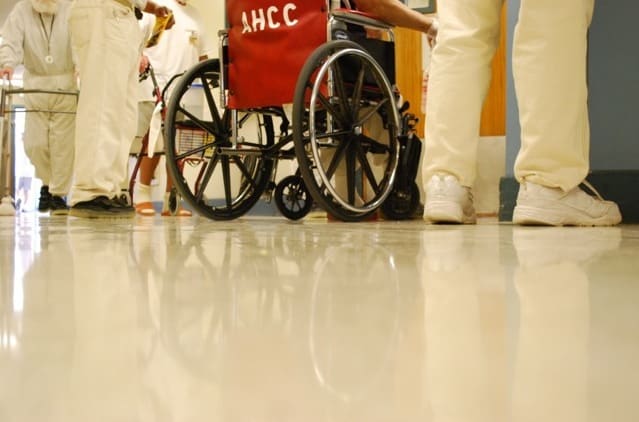Disability is a protected characteristic under the Equality Act 2010, and individuals with disabilities are entitled to the same rights and protections as those without disabilities. However, when it comes to criminal justice, there may be questions about whether or not a disabled person can go to prison. In this article, we will explore the rules and guidelines surrounding disability and incarceration.
Can a Disabled Person Go to Prison?
Yes, a disabled person can go to prison in the United Kingdom. The disability of a person does not exclude them from criminal liability, and they can be held accountable for any crimes they commit. If a disabled person commits a crime, they will be subject to the same legal process as any other person, including arrest, trial, and sentencing.
However, there are legal safeguards in place to ensure that disabled individuals are not discriminated against in the criminal justice system. This includes provisions for reasonable adjustments to be made to ensure that disabled defendants can fully participate in the legal process.
Reasonable Adjustments for Disabled Defendants
The Equality Act 2010 requires that reasonable adjustments be made to accommodate the needs of disabled individuals in all areas of life, including the criminal justice system. This may include:
- Accessible facilities: Prisons and court buildings must be accessible to disabled individuals, including those with mobility impairments, hearing impairments, and visual impairments.
- Interpreters and translators: Disabled individuals who are deaf or hard of hearing or who have limited English proficiency may require the assistance of interpreters or translators to fully participate in the legal process.
- Alternative formats: Documents and other materials may need to be provided in alternative formats, such as large print or Braille, for individuals with visual impairments.
- Special equipment: Disabled individuals may require special equipment, such as hearing aids or wheelchair ramps, to fully participate in the legal process.
It is important to note that the specific accommodations made for a disabled defendant will depend on their individual needs and the type of disability they have.
Life In Prison For A Disables Person
Living in a prison can be a challenging experience for anyone, but it can be especially difficult for those with disabilities. Individuals with disabilities may face additional barriers and challenges in accessing healthcare, education, and rehabilitation services while incarcerated. In this article, we will explore life inside prison for disabled people.
Accessibility
One of the biggest challenges for disabled individuals in prison is accessibility. Many prisons are not fully accessible, and disabled individuals may face barriers in accessing facilities and services. This can include inaccessible cells, bathrooms, and showers, as well as difficulty in accessing outdoor areas and exercise facilities.
In recent years, there has been a push for greater accessibility in prisons, including the provision of ramps, lifts, and wheelchair-accessible cells. However, there is still much work to be done to ensure that prisons are fully accessible to all individuals, regardless of their disabilities.
Healthcare
Disabled individuals in prison may also face challenges in accessing healthcare services. They may require specialized medical care or equipment, which may not be available in all prisons. Additionally, disabled individuals may require more frequent medical appointments and may face longer wait times for treatment.
Prison healthcare providers are required to make reasonable accommodations for disabled individuals, including providing necessary equipment and services, such as interpreters for deaf individuals or sign language videos for those who are visually impaired.
Education and Rehabilitation
In addition to healthcare, disabled individuals may also face challenges in accessing education and rehabilitation services while incarcerated. Many prisons offer educational programs, vocational training, and counseling services to help prepare inmates for their eventual release and reintegration into society.
However, disabled individuals may face barriers in accessing these programs, such as inaccessible classrooms or a lack of accommodations for those with hearing or visual impairments.
Recreation and Socialization
Disabled individuals may also face challenges in participating in recreational activities and socializing with other inmates. Many prisons offer sports teams, art classes, and other recreational activities to help inmates stay engaged and socialize with others.
However, these activities may not always be accessible to disabled individuals, and they may require specialized equipment or accommodations to fully participate.
While there have been efforts to improve accessibility and accommodations for disabled individuals in prisons, there is still much work to be done to ensure that all individuals have equal access to services and facilities. If you or someone you know is a disabled individual in prison, it is important to seek legal advice to understand your rights and options.
A disabled person can go to prison if they commit a crime. However, there are legal safeguards in place to ensure that disabled defendants are not discriminated against in the criminal justice system. Reasonable adjustments must be made to accommodate the needs of disabled individuals, including accessible facilities, interpreters and translators, alternative formats, and special equipment. If you or someone you know is a disabled individual who is facing criminal charges, it is important to seek legal advice to understand your rights and options.







